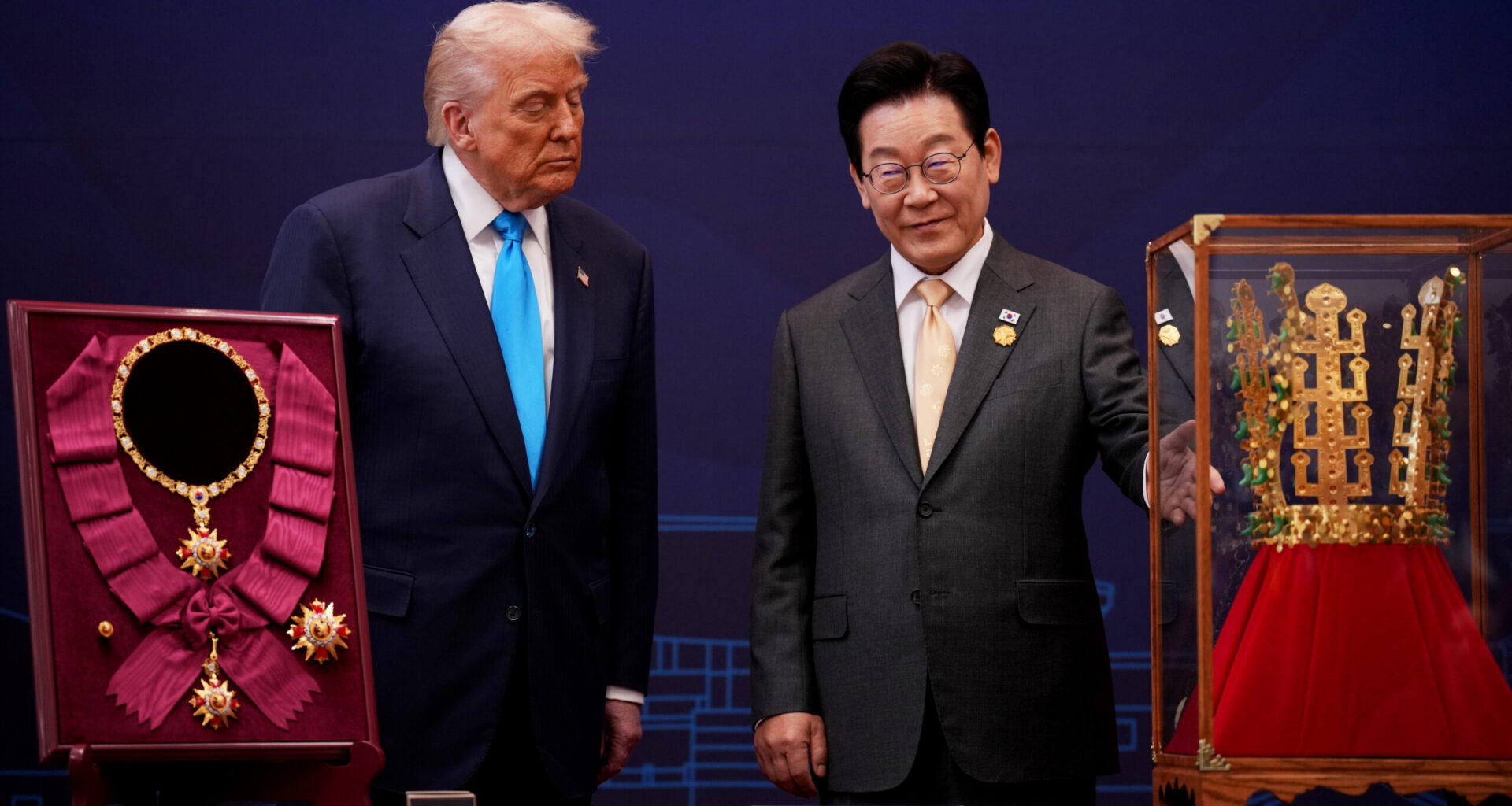South Korea, a key American ally in East Asia, is moving aggressively to play a bigger role in the volatile Middle East, already a crowded theater for great-power competition among America, China and Russia.
Arms, oil and artificial intelligence all featured highly on the agenda of South Korea’s president, Lee Jae-myung during visits to the UAE and Egypt on his way to this weekend’s G20 summit in South Africa. A stop in Ankara to meet President Recep Tayyip Erdogan of Turkey is scheduled for next week’s trip home.
For Mr. Lee, the overriding goal is to promote arms sales. Korea ranks as the world’s 10th largest exporter of arms, according to the Stockholm International Peace Research Institute, with sales last year of $9.4 billion. America ranks first, far ahead of France, Russia, China, Germany, Italy, the United Kingdom, Israel, Spain – and then Korea.
But Mr. Lee, the pragmatic head of his country’s left-leaning Democratic Party, is also anxious to solidify relations with suppliers of oil needed to power his nation’s fast-growing industrial economy. And he is offering to invest huge sums in the region’s bid to become a global AI hub, exploiting its ready access to cheap energy.
Mr. Lee, fresh from hosting President Trump in Seoul last month, has steered clear of involving his country more deeply in the Gaza and Ukraine conflicts that currently preoccupy regional powers such as Saudi Arabia, Turkey and Qatar.
That may require some diplomatic footwork in his talks with Mr. Erdogan, who has upset President Volodymyr Zelensky of Ukraine by advocating concessions to Russia and has been highly critical of Israel’s role in its war with Hamas in Gaza.
But for Mr. Lee, the Middle East gambit is seen less as an attempt to insert himself into the region’s conflicts than as a bid to extricate his country from being squeezed by mounting acrimony between America and China.
Mr. Lee began his mission by tightening ties with the United Arab Emirates – a source like Saudi Arabia of needed oil. Mr. Lee’s team concluded a raft of economic deals before he and his wife, in military uniforms, sat down with members of a Korean security force based in the UAE.
From there, Mr. Lee was off to Cairo for a summit with President Abdel Fattah el-Sisi at which they discussed investment and trade, notably for Korean military products.
The two shared their desire for “international peace including on the Korean peninsula and in the Middle East,” according to Seoul’s Yonhap News. Toward that end, Mr. Lee sought to sell the Egyptians Korea-made FA-50 trainer aircraft that are similar to F16s but not as fast or well-armed. Also under discussion – a $1.7 billion deal under which Hanwha Aerospace is to deliver K9 self-propelled howitzers to Egypt next year.
As a market for Korean products, however, the UAE’s oil wealth makes it a more promising customer. South Korea “will become the most reliable partner for the UAE’s leap forward as an AI hub by 2031,” Mr. Lee told his host, Crown Prince Khaled bin Mohammed bin Zayed Al-Nahyan, in Abu Dhabi.
While there, the president changed from his dark suit and white shirt to desert-brown and tan fatigues to chat with 50 South Korean troops – members of a special forces unit called Akh, Arabic for brotherhood. “You are carrying out important duties that protect peace in the world and the Middle East, “ Mr. Lee. told them.
If the Akh force seems too small to confront terrorism in the opulent tranquility of the UAE, they offer a certain security for 10,000 or so Koreans living and working in a country that faces Iran across the Persian Gulf. About half that many Korean troops are stationed in Saudi Arabia, where foreign troops are less welcome.
While Saudi Arabia ships more than twice as much oil to Korea as does the UAE, the emirates seem more open to investment. Deals under discussion range from AI data centers to semiconductors to port projects, as well as military equipment.
All that’s on top of four nuclear energy reactors for which the UAE has paid South Korea more than $20 billion. The fourth reactor has just gone online – and the Koreans are talking about sending more not only to the UAE but elsewhere in the region.
